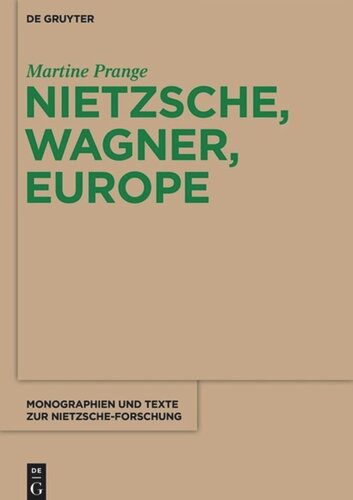

Most ebook files are in PDF format, so you can easily read them using various software such as Foxit Reader or directly on the Google Chrome browser.
Some ebook files are released by publishers in other formats such as .awz, .mobi, .epub, .fb2, etc. You may need to install specific software to read these formats on mobile/PC, such as Calibre.
Please read the tutorial at this link: https://ebookbell.com/faq
We offer FREE conversion to the popular formats you request; however, this may take some time. Therefore, right after payment, please email us, and we will try to provide the service as quickly as possible.
For some exceptional file formats or broken links (if any), please refrain from opening any disputes. Instead, email us first, and we will try to assist within a maximum of 6 hours.
EbookBell Team

5.0
78 reviewsFriedrich Nietzsche (1844-1900) supported the unification of Europe and reflected on this like few other philosophers before or after him. Many of his works are concerned with the present state and future of European culture and humanity. Resisting the “nationalist nonsense” and “politics of dissolution” of his day, he advocated the birth of “good Europeans,” i.e. “supra-national” individuals and the “amalgamation of nations.”
Nietzsche, Wagner, Europe analyzes the development of Friedrich Nietzsche’s ideal of European culture based on his musical aesthetics. It does so against the background of contemporary searches for a wider, cultural meaning beyond Europe’s economic-political union. The book claims that Nietzsche always propagated the “aestheticization” of Europe, but that his view on how to achieve this changed as a result of his dramatically altering philosophy of music. The main focus is on Nietzsche’s passion for and later aversion to Wagner’s music, and, in direct connection with this, his surprising embrace of Italian operas as new forms of “Dionysian” music and of Goethe as a model of “Good Europeanism.”